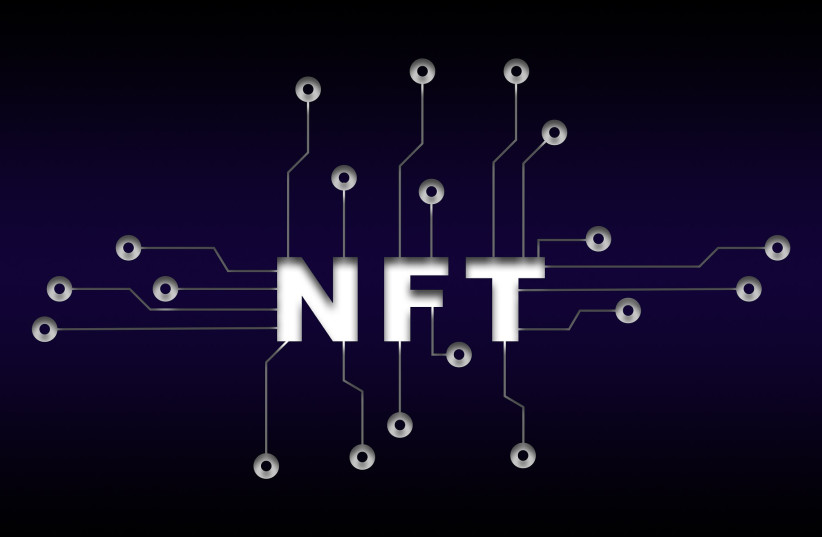Influential Space, touted as Israel’s first NFT gallery, opened in April and is one of the first in the Middle East to transition from the physical to virtual art world.
“The NFT space will become more dominant as more buyers and sellers enter this realm,” said Tlalit Prescher, the site’s co-founder, adding that her gallery’s mission is to showcase the digital works of renowned and new artists while influencing the way people experience or invest in NFT art.
NFTs, or non-fungible tokens, are one-of-a-kind digital assets – ranging from animations to images, videos or songs – that are uniquely certified using immutable smart contracts on cryptocurrency blockchains, mostly Ethereum. Unlike a dollar bill or a shekel, an NFT isn’t fungible, or able to be exchanged with another identical item.
The hype-fueled NFT market exceeded the equivalent of $40 billion in 2021, meaning almost as much was spent last year on digital collector items as traditional art. Artists are attracted to this novel realm thanks to the agency it provides them in the sale and movement of their own works. Speculative buyers are entering the space in the hope of purchasing an asset that will eventually appreciate considerably in value.
Skeptics have dismissed NFTs as a fad or bubble that will soon burst. British painter David Hockney, who holds the record for most expensive painting to be sold by a living artist, recently dubbed NFTs with an altered acronym – ICS, which he defined as “international crooks and swindlers.” Hockney went on to describe the $69 million piece of NFT art sold by Christie’s as “silly little things.”

Israel has not shied away from the polarizing emerging market. In July 2021, the Knesset became the first national legislature to jump on the NFT bandwagon when it presented an encrypted digital copy of former president Chaim Herzog’s signed oath of office to his son, Isaac Herzog, ahead of his presidential inauguration.
Ramat Gan-based Shenkar College is at the forefront of NFT art and culture innovations. In two weeks, Shenkar will be hosting its second annual NFT conference, which, according to its website, will focus “on the main uses of NFT technology: community art, start-ups, copyrights and possible applications.”
Shenkar President Sheizaf Rafaeli expects more than a thousand attendees at the NFT conference, including students, artists, music producers, investors and government personnel.
“There’s hardly a sector in society that isn’t going to be touched by NFTs,” Rafaeli said.
“NFTs carry or broadcast a promise to solve at least part of the intellectual property ownership issue that has been troubling the creative and expressive fields for the last few decades,” he said. “As you advance digital technology, the easier they are to copy and the more difficult they are to preserve ownership and enumeration. So, the technical aspect of being able to track who currently is using what NFTs offers hope of some support.”
Rafaeli noted that Shenkar has been offering over a dozen courses on digital art, including a master’s degree in video games and digital fashion, long before NFTs first entered the mainstream lexicon.
He added that Shenkar has already forged partnerships to promote teachings of digital art in Morocco and the Emirates. What surprises Rafaeli is how traditional and inherently tangible industries like fashion and jewelry are also entering this space at full throttle.
One artist being introduced to the NFT space by Influential Space is Yosi Ohayon, an art director and designer whose NFT art portfolio includes Trump S, a cartoon of the former US president with his lips being made up of his signature. For Ohayon, NFTs are the logical progression for artists.
“Art is the antithesis to everyday reality and it’s only natural that NFTs are traded in digital currency,” he said. “Traditional art is an art that is outdated.”
Other Israeli artists are willing to explore the digital art world with a more cautious optimism, not knowing whether the NFT art market will soon bust, or if it will continue to boom.
“It can either be the natural evolution of the art market, or a total bubble,” said Uri Fink, a comic book artist and creator of the comics series Zbang! “What do I have to lose? It’s exciting either way.”
Influential Space can be seen at https://www.influential.space/
